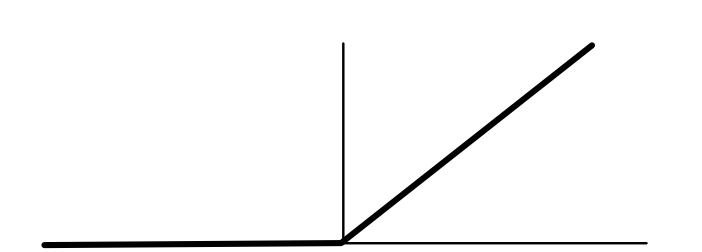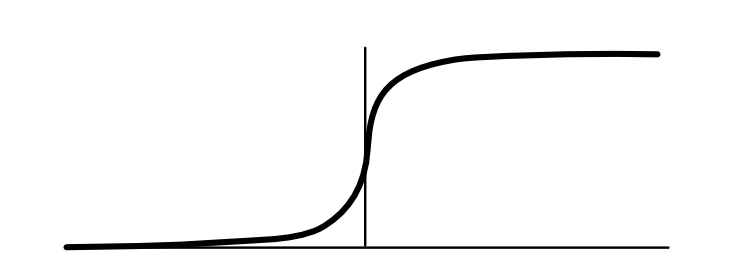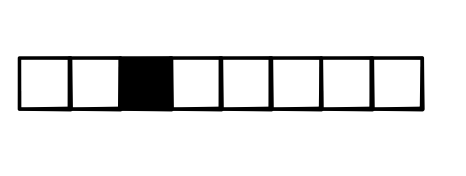Module 4.3 - Advanced NNs¶
Why does folding work?¶
- View requires "contiguous" tensor
- View(4, 2) makes strides (2, 1)
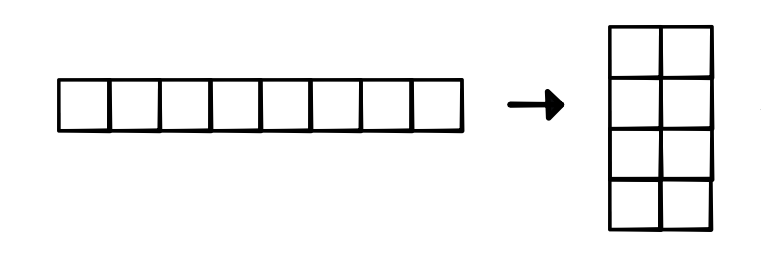
Simple Implementation¶
- Reduce along created fold
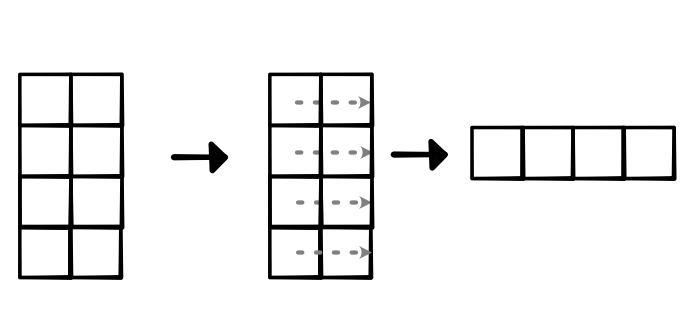
Quiz¶
Gradient Flow¶
- Layers that are used get more updates
- Gradient signals which aspect was important
- Can have extra layers
More Reductions¶
- Heading for a
maxreduction - Heading for a
softmaxoutput - Quick detour
ReLU, Step, Sigmoid¶
Basic Operations¶
- Introduced in Module-0
- Widely used in ML
- What is it?
Relationship¶
Step is derivative of ReLU
$$ \begin{eqnarray*} \text{ReLU}'(x) &=& \begin{cases} 0 & \text{if } x \leq 0 \\ 1 & \text{ow} \end{cases} \\ \text{step}(x) &=& \text{ReLU}'(x) \end{eqnarray*} $$
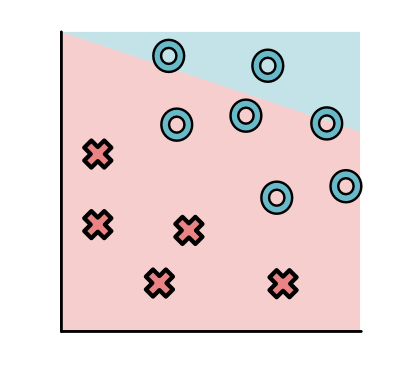
Loss of step tells us how many points are wrong.
Derivative of Step?¶
Mathematically,
$$\text{step}'(x) = \begin{cases} 0 & \text{if } x \leq 0 \\ 0 & \text{ow} \end{cases}$$
Not a useful function to differentiate
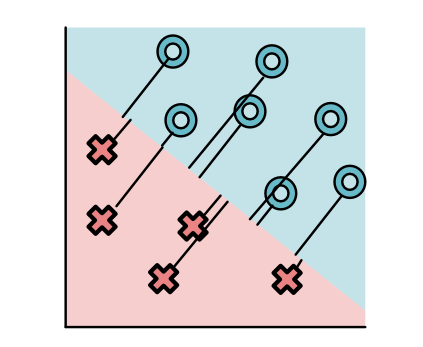
Soft (arg)max?¶
Would be nice to have a version that with a useful derivative
$$\text{sigmoid}(x) = \text{softmax} \{0, x\}$$
Useful soft version of argmax.
Max, Argmax, Softmax¶
Max reduction¶
Max is a binary associative operator
$\max(a, b)$ returns max value
Generalized $\text{ReLU}(a) = \max(a, 0)$
Max Pooling¶
- Common to apply pooling with max
- Sets pooled value to "most active" in block
- Forward code is easy to implement
Max Backward¶
- Unlike sum, max throws away other values
- Only top value gets used
- Backward needs to know this.
Max Backward¶
- First compute
argmax - Only send gradient to
argmaxgradinput - Everything else is 0
Ties¶
- What if there are two or more argmax's?
- Max is non-differentiable, like
ReLU(0). - Short answer: Ignore, pick one
HW¶
- When writing tests for max, ties will break finite-differences
- Suggestion: perturb your input by adding a small amount of random noise.
Soft argmax?¶
- Need a soft version of argmax.
- Generalizes sigmoid for our new loss function
- Standard name -> softmax
Softmax¶
$$\text{softmax}(\textbf{x}) = \frac{\exp \textbf{x}}{\sum_i \exp x_i}$$
Sigmoid is Softmax¶
$$\text{softmax}([0, x])[1] = \frac{\exp x}{\exp x + \exp 0} = \sigma(x)$$
Review¶
- ReLU -> Max
- Step -> Argmax
- Sigmoid -> Softmax
Softmax¶
Network¶
Network
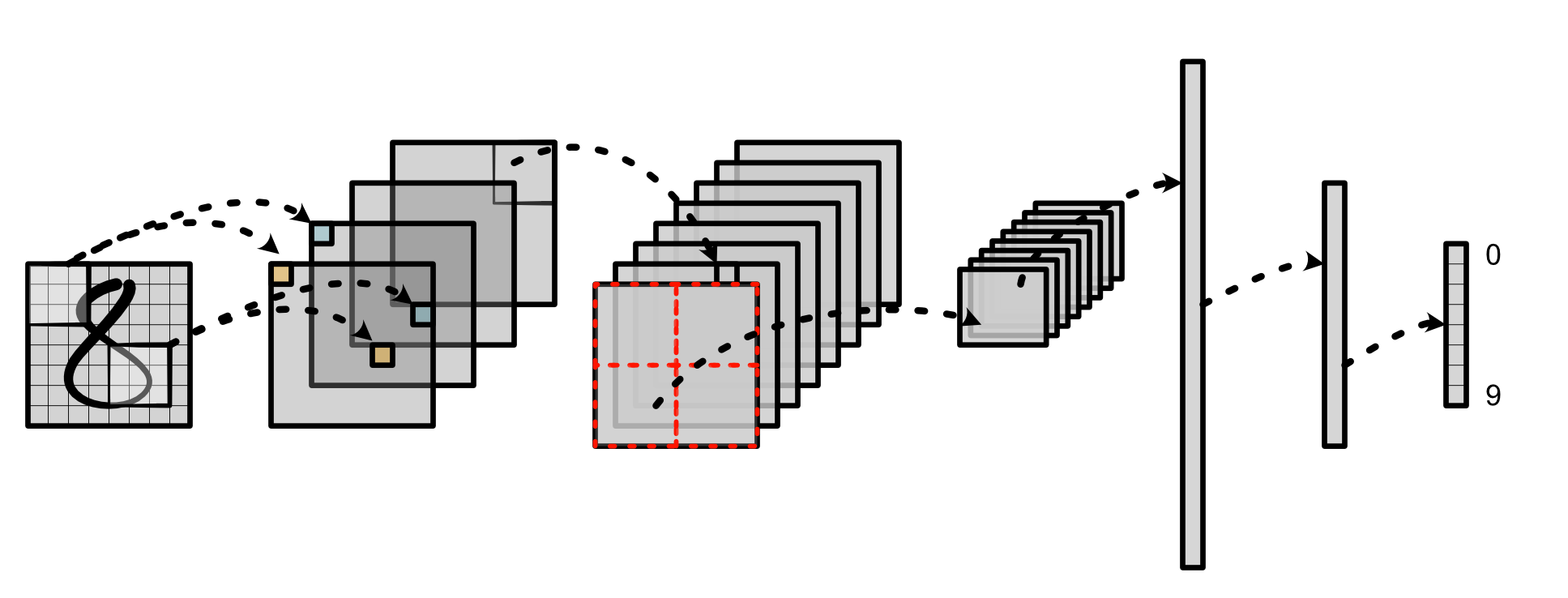
Softmax Layer¶
- Produces a probability distribution over outputs (Sum to 1)
- Derivative similar to sigmoid
- Lots of interesting practical properties
Softmax in Context¶
- Not a map!
- Gradient spreads out from one point to all.
Soft Gates¶
New Methods¶
- Sigmoid and softmax produce distributions
- Can be used to "control" information flow
Example¶
Returns a combination of x and y $$f(x, y, r) = x * \sigma(r) + y * (1 - \sigma(r))$$
Gradient is controlled¶
$$\begin{eqnarray*} f'_x(x, y, r) &= \sigma(r) \\ f'_y(x, y, r) &= (1 - \sigma( r))\\ f'_r(x, y, r) &= (x - y) \sigma'(r) \end{eqnarray*}$$
Neural Network Gates¶
Learn which one of the previous layers is most useful. $$\begin{eqnarray*} r &= NN_1 \\ x &= NN_2 \\ y &= NN_3\\ \end{eqnarray*} $$
Gradient Flow¶
- Layers that are used get more updates
- Gradient signals which aspect was important
- Can have extra layers
Selecting Choices¶
- Gating gives us a binary choice
- What if we want to select between many elements?
- Softmax!
Softmax Gating¶
- Brand name: Attention
Example: Translation¶
- Show example
Example: GPT-3¶
- Show example

